Home » Gear Reviews » Biking » Road Bikes » Road Race Bikes » Fuji Roubaix 1.1
Fuji Roubaix 1.1 Review
January 15, 2018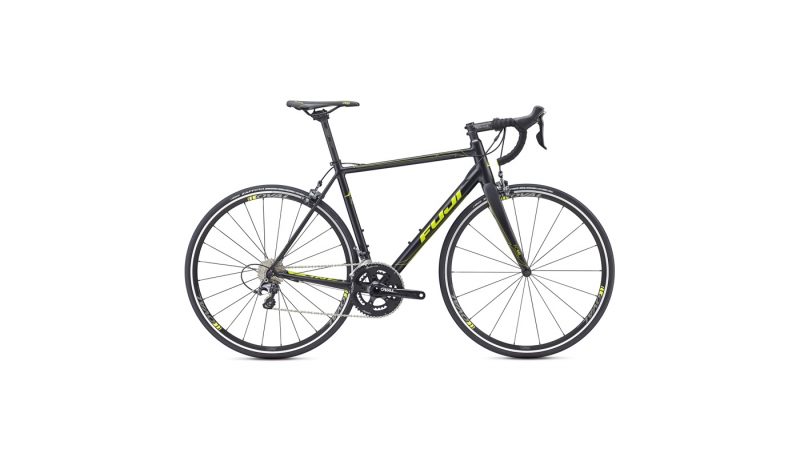





















 88
88 The Good
- Through axles
- Ultegra components
- Shimano disc brakes
The Bad
- Painful saddle
- Road vibration
- Heavier than competition
The Roubaix has a nice blend of characteristics as a bike, and also in its build. It walks the line between a straight up road race bike, with some endurance qualities. The Roubaix is an aluminum framed bike in a class dominated by carbon, but still manages to weigh in at 19 pounds and comes with Shimano’s Ultegra components, which is a substantial step up above the Shimano 105 group – the most common spec in this category. When purchasing at the entry level, you typically spend your money on the frame or the groupset (parts), and this bike is demonstrative of the better group winning out. The Oval Components like handlebar, stem and seatpost add to the joy of the bike by rounding out an already quality parts list. At the retail list price, the Roubaix is a value, however look around, as it can be found on sale at a discount.
Ride Quality
The Roubaix has a race feeling featuring a shorter wheelbase, making for quick and nimble handling. Being an aluminum framed bike (A6-SL super-butted 6066 aluminum), it offers substantial stiffness and is reasonably light. The Oval Concepts 500 cranks are spun on a Praxis bottom bracket and appropriately stiff to match the frame and fork. Aluminum framed bikes are an acquired taste, where their stiffness and lightweight nature are the benefits, however they do transfer road noise, and the Roubaix is no exception. I enjoyed the turning qualities of the Roubaix, sharp and crisp in the corners, responsive. The fork is a carbon FC-440 with alloy dropouts and a 73 degree head tube angle, which is typical in the category.
Stiffness-to-Weight/Power Transfer
The Roubaix 1.1 gives a surprising impression that you could take to a race and do well. The A6 SL aluminum frame is completely stiff in places that matter. There is no sway in the frame, and the associated parts like the Oval Concepts 310 Ergo handlebar and Oval Concepts 313 stem hold up their end of the deal when it comes to rigidity. When out of the saddle sprinting, or doing an extended climb, the bike has the structural integrity required to do the job.
Climbing/Efficiency
The Roubaix’s Oval Concepts 310 Ergo handlebar is extremely comfortable in the palm, and a perfect width. A comfortable bar makes the climb more enjoyable, and is worth the investment. The frame’s stiffness also makes for a climbing pleasure, and of course the mere 19 pounds goes a long way too. The shorter wheelbase makes for a responsive climbing machine. The Roubaix feels like a climber’s bike in terms of position, which is slightly less forward than some bikes we tested in this category.
Descending/Handling
The Roubaix 1.1 has a perky feel on the descent. Though hardly a short wheelbase at 989 mm, it is shorter than some, and it makes for a quick turning machine that has some very responsive characteristics. Thankfully, it also stops well. Shimano Ultegra brakes and Ultegra STI levers offer excellent modulation, light hand actuation and fantastic grip. They are also quiet. Testers noted they wanted to get their weight back on a hard and fast descent, which is a small price to pay for the climbing process of the Roubaix.
Components: Drivetrain, Shifting and Brakes
Oval Concepts 500 cranks spinning Praxis 52/36 rings mated with a Shimano 105 11-28 11-speed cassette provide ample gearing for climbing steeps and equally well geared for a fast and furious downhill. Front and rear Shimano Ultegra derailleurs with Ultegra shifters create crisp shifts requiring little hand energy. The shifts are quiet and smooth. Ultegra drivetrains are famous for their longevity and typically worth the upfront cost. Shimano hydraulic disc brakes are a real difference maker on the Roubaix. These are fantastic brakes that create a well founded sense of well being on the descent with proper stopping power. They are quiet, require reasonable hand action and don’t fade on even the most punishing descents.
Wheelset
The wheels are Oval Concepts 527 rims on on Centerlock hubs featuring 24 spokes. The rims are wearing Vittoria Zaffiro Pro tires. The wheels are sufficiently stout for a bike that is intended for road use, and perhaps some weekend distance or race riding. They are adequately light.
Value
For $1,799, the Roubaix 1.1 is a great value as an aluminum framed light race oriented bike. As of writing this, the Roubaix was on sale for $1,300 at selected retailers, which is an excellent value for an Ultegra level bike.
Our road testing took place in Colorado and California, which when combined has the best of all road biking challenges: towering climbs, massive descents and endless flats and rollers to push these bikes to their limits. The bikes were tested riding through the coastal mountains and the redwoods of California, testing their grip in slick and slippery road conditions by the seashore and up into the Redwood Rain through the twistiest of descents. Colorado offered opportunities for massive climbs and descents, including the famed Morgul-Bismark road loop which is used on every road bike we tested because of its variety of terrain, 18 percent grade on “The Wall,” and its notorious wind. In all we rode over 750 miles on these bikes, climbing over 75,000 feet of vertical.
Seth Portner has been riding and racing mountain bikes since the late 1990s, specializing in XC, marathon and ultra-marathon events. He also enjoys regular multi-day road tours, and is an accomplished ultrarunner and XC skier. Seth, his wife and their daughter all split their time between Lyons and Winter Park.
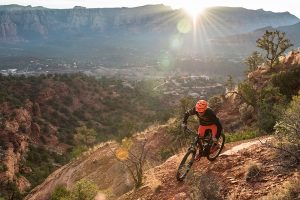
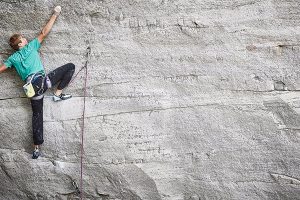








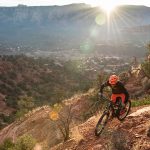



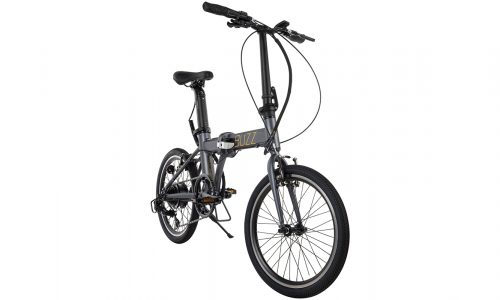



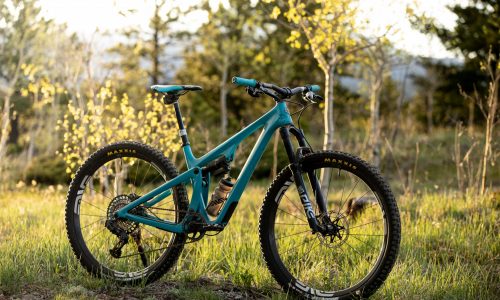

No reviews have been posted for this product.
Use this gear?
Join Gear Nation and leave a review!
Create an Account